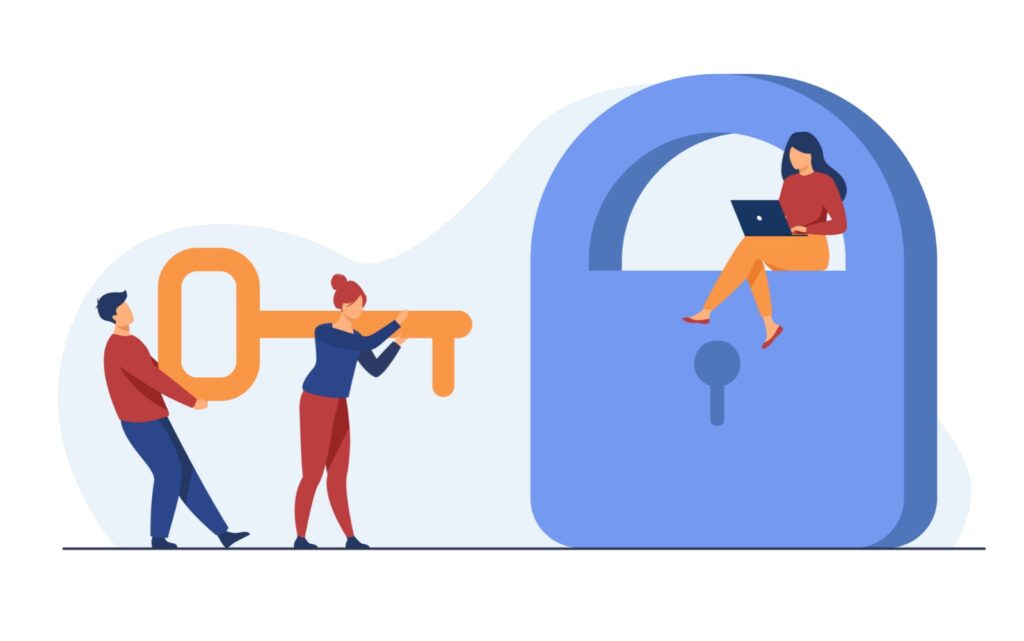A secure E-commerce platform is the bedrock of a secure and successful online store.
The e-commerce industry represents a highly profitable target for cybercriminals, which underscores the importance for online retailers to recognize the associated risks and take proactive measures to safeguard their websites. Protecting sensitive customer information is paramount & businesses must remain vigilant in their efforts to prevent data breaches and other forms of cyber attacks.
Common E-commerce security risks
- Skepticism towards online confidentiality
- Online and malicious scams
- Complex and uncertain digital transactions
You can learn more about E-Commerce & Website security by taking a Cyber security course in Ahmedabad from a reputed institute.
Best Practices to secure your online store:
1) Choose a secure E-commerce platform
As the saying goes, a strong foundation is key to building a secure e-commerce website. Choosing a suitable platform is the first step, but with so many open-source options available, it can be challenging to select the best fit. Regardless of your choice, it is imperative to ensure that the platform has robust security measures in place and is PCI compliant. Conducting regular PCI scans on your server is crucial to validate compliance.
2) Implement SSL certification
When it comes to securing online transactions, SSL is the widely accepted standard. By authenticating user identity and encrypting data both at rest and in transit, an SSL certificate provides a secure connection between your e-commerce website and end-user systems.
For tech-savvy consumers, the presence of a padlock icon and “HTTPS” in the address bar is a non-negotiable requirement when providing personal information. A vendor that takes every measure to safeguard their transactions inspires confidence in customers. This increases the likelihood of successful transactions.
3) Enhance security with 2-factor authentication
With the ever-growing threat of web security breaches, ensuring the safety of online stores is crucial. Stolen or compromised user credentials are a common cause of these attacks, often achieved through sophisticated phishing techniques. As a result, implementing a reliable user authentication mechanism has become a fundamental aspect of safeguarding e-commerce sites. Two-factor authentication (2FA) has emerged as an extra layer of security, requiring users to provide two means of identification.By adding an auto generated code sent to a verified phone number to the traditional username/password combo, hackers are unable to breach the system, as the code expires quickly.
4) Use a Virtual Private Network
When handling customer data, particularly financial transactions, it is crucial to exercise caution when using public networks. This is because such networks are susceptible to interception by malicious users. To mitigate this risk, a Virtual Private Network (VPN) is recommended. VPN provides an encrypted connection to a secure offsite server, preventing a third party from intercepting data transmitted between the user and server. For those concerned about the cost of a traditional VPN service, an SSL-based VPN is a more affordable alternative.
5) Use tools to test your website’s security strength
Regular security scans using website security tools can provide a general diagnosis of a site’s security level and offer suggestions for improvement. These scans should be conducted weekly or monthly, as well as whenever significant changes are made to the site. The utilization of these tools is essential in maintaining a secure website.
6) Use a strong, complex password

Many individuals prioritize convenience over security when creating passwords, opting for easily remembered or reused ones, which poses a grave risk to website security. Such practices make it effortless for cybercriminals to breach website systems. Therefore, one of the most critical measures to ensure e-commerce website security is to ensure that all login passwords, whether set by customers or employees, are complex, unique, and regularly updated.
7) Monitor and update your plugins, themes, extensions etc.
It is imperative to stay vigilant and apply patches to plugins, extensions, themes and security software as soon as they become available to ensure that your system remains secure. In addition, removing any unnecessary extensions that are no longer in use is also important for reducing potential attack vectors. By maintaining a proactive approach to e-commerce security, you can help protect your organization’s assets & safeguard the sensitive information of your customers.
Conclusion
Implementing e-commerce security best practices is essential for companies to gain a competitive advantage and succeed in the market. While users and e-commerce service providers focus on common security risks such as virus attacks, other crucial aspects like data encryption, digital certificates & data backup are often overlooked.
By taking a good cyber security course in ahmedabad, you can increase your knowledge & provide users with a seamless browsing and shopping experience that e-commerce websites need to ensure that they have the correct service strategy measures in place.
Cyber octet helps in providing proactive e-commerce security solutions against any contingencies.

